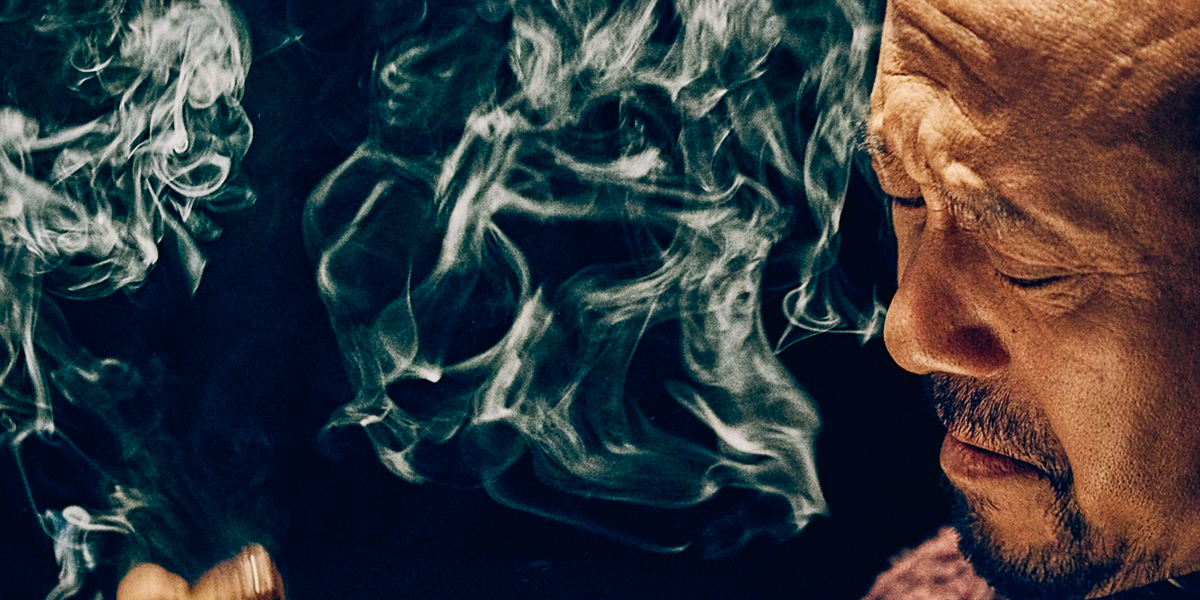Film Review: ‘Hidden Man’
By Jessica Kiang
LOS ANGELES (Variety.com) – If the delicacy of the English title, “Hidden Man,” makes you think that Chinese actor-director Jiang Wen (last seen by Western audiences in “Rogue One”) might have come over uncharacteristically restrained for the final installment of his action trilogy after 2010’s “Let the Bullets Fly” and 2014’s “Gone with the Bullets,” the seriocomic, gory beheadings and eviscerations that happen in the film’s first few minutes should disavow you. And if not that, perhaps the small boy running from the scene while burning alive? The sheer excess of this exuberant but also exhausting period blockbuster is much more accurately conveyed by its grandiose Chinese title, which roughly translates to “Evil Does Not Prevail Against Righteousness.” If it were “Evil Does Not Prevail Against Righteousness But It Takes a Very Long Time Not to Prevail,” it would be perfect.
The aforementioned burning boy survives the gory attack that opens the film and vows revenge on the murderers of his master’s family: the power-hungry Zhu Qianlong (Liao Fan) and his Japanese sidekick Nemoto Ichiro (Sawada Kenya). It’s rural China in 1922, and when the plan they had hatched to sow a plot of land with opium is blocked by the old Master, they kill him and his family and set fire to the house. The young escapee, Li Tianran, is taken in by American expat doctor Wallace Handler (Andy Friend) who sends him to San Francisco to study medicine, but more importantly to blossom into frequently shirtless Taiwanese-Canadian heartthrob Eddie Peng.
These days it’s the norm for Hollywood blockbusters to court the Chinese market by adding China-set sequences or Chinese supporting characters, so it’s sort of interesting to see the reverse occur here, although ’s conception of early 20th-century San Francisco isn’t immensely realistic. But then neither is anything else in “Hidden Man,” in which production designer Liu Qing’s intricate and luscious locations seldom sacrifice pictorialism for authenticity — often to breathtaking effect, in gorgeous snow-covered cityscapes and seedily decadent interiors, captured in DP Xie Zhengyu’s fluid, elegant photography. Now qualified as a doctor and buff as hell, Li (who has taken the Western first name Bruce, in one of the film’s running nomenclature gags) is recruited by his handler, Dr. Handler, to be a spy against the encroaching Japanese threat back in Peiping (the pre-war name for Beijing), where his nemeses Zhu and Nemoto are now men of influence.
“Mission before vendetta” is the motto drummed into Li, along with the secret handshakes and codes of his new trade, but it’s to the detriment of the film’s pacing that he takes that literally. In the talky, jokey, and often incoherent middle third, the film’s simple revenge storyline is a dish left to cool too long, while Li gets entangled in a Chinese puzzle of subplots, any one of which could power a whole movie of its own. There’s the “Black Dahlia”-esque dead American woman; a stimulant-addicted cunning seductress (Xu Qing) who gets a humiliating comeuppance; some light historical commentary on Japanese involvement in the opium trade; a lot of arch-villainous speechifying about wanting to establish “a new Ming Dynasty”; and even, in among the crude gags and pratfalls, a preemptive digression involving a sniveling critic character who wails, “Can’t I say it’s shit without watching it?”
Many of these side stories are orchestrated by shady middleman Lan Qingfeng, charismatically played by Jiang Wen himself, providing the link between this film and its two predecessors, which are set in different regions and periods, but also feature a manipulative Jiang character who plays both ends against the middle. And some of them are more engaging than others: The lighthearted sparring between Li and Guan Qiaohong (Jiang’s wife Zhou Yun), a lame dressmaker who turns out to have her own revenge mission in hand, is a particular pleasure, not least for the way Zhou’s sparky wit enlivens Peng’s otherwise rather blank hero.
The frenetic yet wearying pace of the film is an irritant because when it comes to the action goods, Jiang knows how to deliver, with fight scenes that are less balletic than traditional wuxia, but no less thrilling and often very funny, pivoting around cornily self-aware action beats. And the sloping tiled rooftops of 1930s Peiping may be overused as a location, but whether Li is running across them to get to a secret assignation, fighting atop them, or even cycling along their narrow peaks, they give the film an airy, fantastical quality that is fleet and fun. But there’s simply so much movie in “Hidden Man” that long before a rushed finale concludes its unnecessary 134 minutes, you may find yourself engaged by its jokiness, admiring of its action and absolutely longing for the fun to end.

